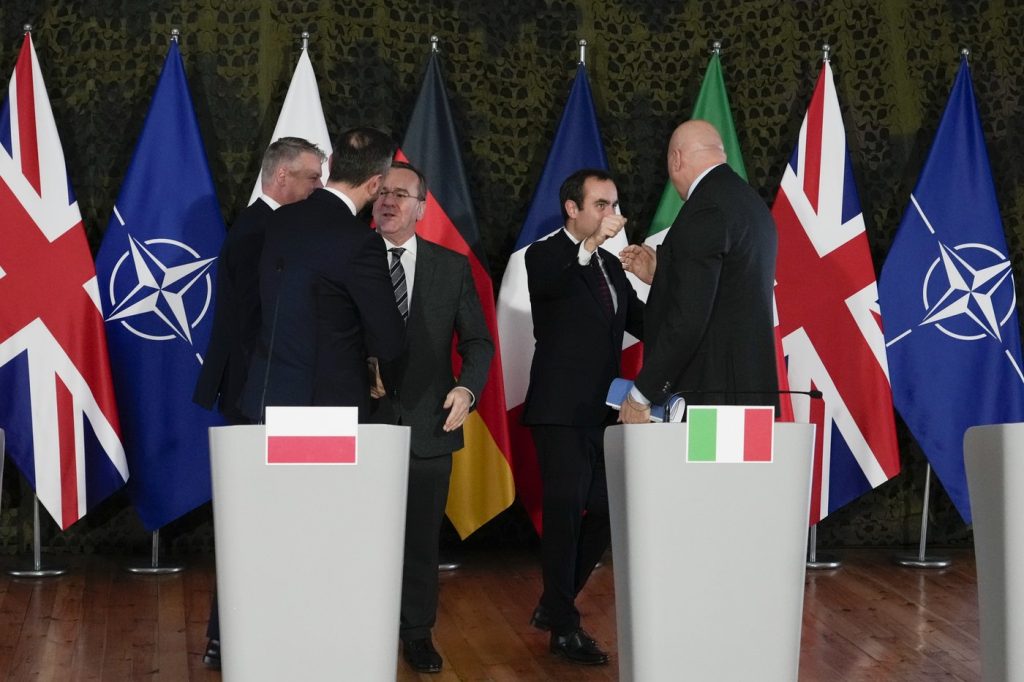The defense ministers of Europe's five largest military spenders gathered in Warsaw, Poland, to discuss the future of defense investments amidst a changing political landscape. Germany, France, Britain, Italy, and Poland are collectively responding to President-elect Donald Trump's recent calls for NATO allies to raise military spending to 5% of their gross domestic product (GDP). This target, described as complicated by the ministers, has raised questions about feasibility and prioritization of defense expenditures.
During their meeting, which was the second of its kind following their inaugural gathering in Berlin in late November, the ministers emphasized their determination to maintain support for Ukraine while navigating anticipated shifts in U.S. foreign policy with Trump’s impending presidency. A critical point of discussion was how to bolster Ukraine's weapons production capabilities in light of ongoing conflicts.
German Defense Minister Boris Pistorius highlighted the ministers' shared commitment to establishing a just peace for Ukraine, stressing the importance of Ukrainian input in determining its fate. There are prevailing concerns within Europe that Trump might advocate for Ukraine to concede to unacceptable terms from Russia, sparking further debate among the European defense leaders.
The ministers also addressed the contentious issue of military spending following Trump's directive. Despite urging allies to aim for the ambitious 5% of GDP target, none has reached this threshold, with Poland leading the pack at over 4% and poised to approach the 5% mark this year. The ministers were cautious about equating military spending percentages directly to security effectiveness.
Pistorius articulated that a focus solely on expenditure percentages might detract from achieving NATO's collective objectives. He pointed out that if Germany were to allocate 5% of its budget for defense, it would entail using more than 40% of its national budget, an outcome he deemed unsustainable and likely to end the discussion on that target.
Italian Minister of Defense Guido Crosetto acknowledged the necessity for increased defense investments but emphasized the need to consider the economic recovery concurrently. He stated that raising defense budgets amid an economic crisis presents a unique challenge, calling for an integrated approach that leverages the European defense industry as a means to stimulate economic growth.
French Defense Minister Sébastien Lecornu underscored the broader security landscape, mentioning the imperative need for increased spending not only for traditional military purposes but also for countering non-military threats such as cyberattacks and terrorism. He criticized the repetitive discourse surrounding figures like 2%, 3%, or 4% without fully grasping their implications, stressing that the current security situation is more perilous than during the Cold War, highlighted by the emergence of new, largely digital frontlines.
Lecornu warned that nations can be compromised without conventional invasion. He advocated for an expansive vision of national defense responsibilities that transcends mere military concerns, reflecting the evolving complexities of global security.
As these defense ministers prepare for a future shaped by shifting geopolitical dynamics, their discussions signal a commitment to collaborate closely on defense strategies and sustain support for Ukraine amid concerns over U.S. policy changes under Trump. The focus on investment strategies that align military preparedness with economic realities will be critical as they navigate this complex landscape.










